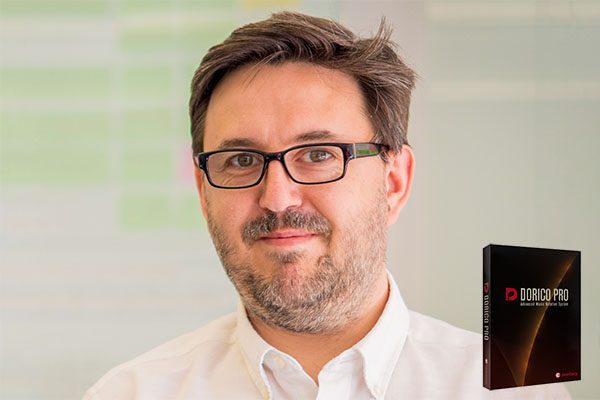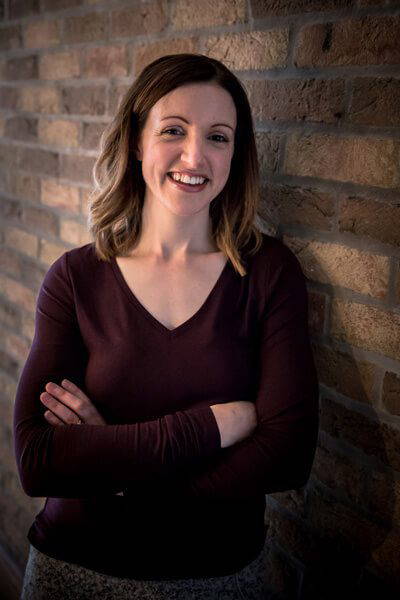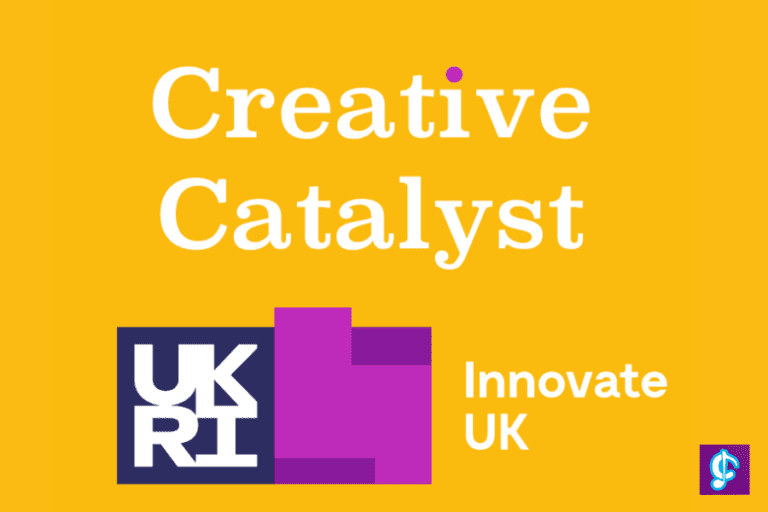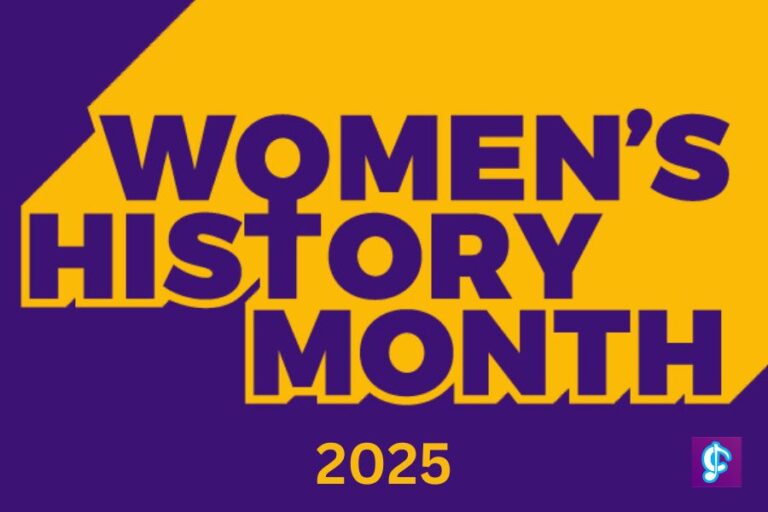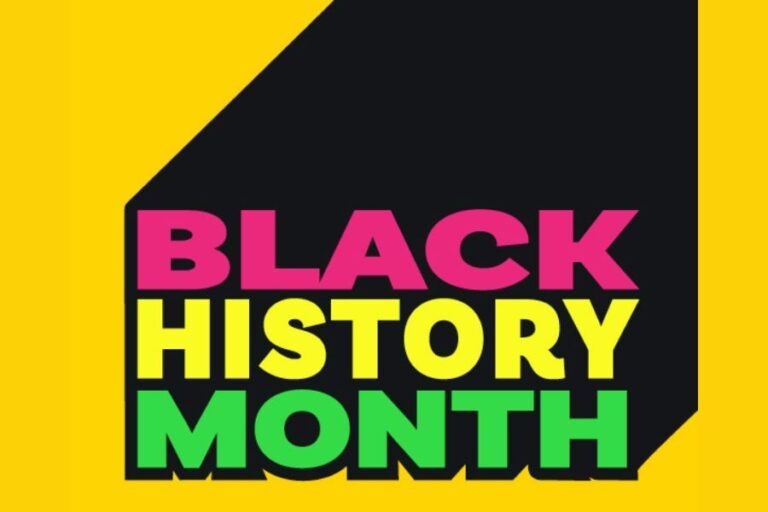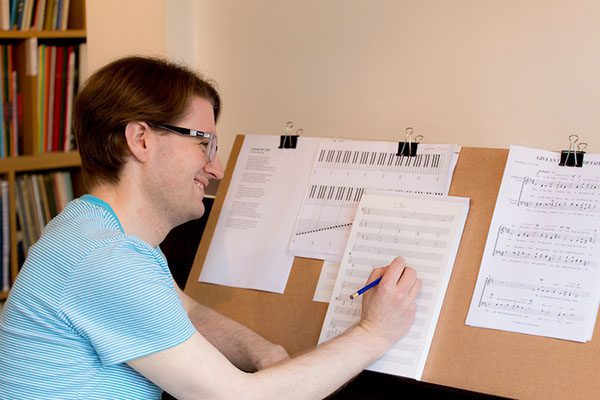Daniel Spreadbury is Product Marketing Manager for Dorico, Steinberg’s music notation software. Daniel is a keen singer and choral director who studied music at University College, Oxford, and after graduating was appointed a lay clerk at Ely Cathedral. He joined Sibelius Software as a technical support representative in 1999, and over the following years took over responsibility for writing the product’s documentation, and was for many years its product manager.
In 2012, when the original Sibelius development team was laid off by corporate owner Avid, Daniel and the rest of the team joined Steinberg, where they have built Dorico from scratch. Daniel’s responsibilities include leading the design of the software in collaboration with the engineering team, and leading the marketing efforts for the software as it establishes itself both in the music industry and in education.
This month I was thrilled to catch up with Daniel and find out more about his journey to being a software developer and his passion for music.
Firstly, can you tell us a bit about your musical experiences and influences when you were growing up?
I was very influenced by my parents, both of whom are music lovers though neither of whom play an instrument. My maternal grandfather knew Edward Elgar, and I grew up listening to a lot of cello music, including Elgar’s cello concerto. So by the time I was able to choose an instrument to play at junior school, it seemed predestined that I would choose to play the cello! I also studied piano, and my mother always tells me that I was singing before I could talk. I sang in church choirs as a boy treble, and in the end it was my voice that became my main instrument. Despite toiling away at the cello all the way into my twenties I was never really able to make the breakthrough that would allow me to produce the sounds I was hearing in my head. Likewise with the piano, I studied hard until I went off to university, but once I had finished my studies I was without a piano for well over a decade, so my skills have diminished significantly! Fortunately my voice is always with me, and I am still both a keen singer and choir director. Singing in choirs and directing choirs is one of the enduring joys of my life.
Do you have a favourite composer?
That’s a bit like asking me to choose my favourite child! As it surely does for any music lover, it depends on the day of the week and my mood. Elgar is obviously a favourite, given the influence of his music on my early years, and I do tend to gravitate towards music of the Romantic period and early twentieth century. Brahms is a composer whose music I absolutely love: there is sturdiness and solidity to his music, but also great depth of feeling and profound emotion. I have been fortunate enough to both perform in (many times) and conduct (once) Ein deutsches Requiemand that piece is very special to me, but so too is his third symphony, and his late piano pieces – not that I can do them justice myself! There are so many other composers whose music I admire, of course. One of the great joys of music is discovering a new work or a new composer, and I hope that I will be lucky enough to discover more works that can have the same impact on me in the future as the Brahms Requiem, or Mahler’s second and ninth symphonies, or Duruflé’s Requiem, and on and on…
Did you do much composition at school?
I did do some composition beyond what was required of me for my GCSE and A-Level work, yes. I have always enjoyed writing music for voices, so I set a number of poems in a little set, and I wrote a few choral pieces. My music degree involved a lot of composition, but mostly as technical exercises to master particular kinds of harmony or musical form, and I had to write one or two every week, so with all of the essays to write, singing in choirs and other things I was doing I didn’t do much composition just for myself. After college I wrote a few little pieces, but then I found my creative energies going into my work and I’ve only really done arranging for my various choirs since then.
What was your journey to becoming a music notation software developer?
When I finished my degree I had no idea what I was going to do. My peer group seemed to all have a pretty good idea what they were going to do: some went off into teacher training, some went into arts administration, a few went straight into professional ensembles, some went on into further study. The only thing I was sure of was that I didn’t want to work in an office, and that I wanted to make music part of my profession. An old school friend of mine took a position as an alto lay clerk at Ely Cathedral around the time I finished my degree, and told me they were looking for a tenor lay clerk, so I auditioned and got the position. I have been involved in church music since I was a boy, but to be part of a choral tradition stretching back hundreds of years in that magnificent building was very meaningful to me. Unfortunately, being a lay clerk doesn’t pay very well and so I was casting about for something else to do so that I could afford to keep being a lay clerk! After a number of temporary jobs, the organist at the cathedral passed on an email to me from Sibelius Software looking for a copywriter and a technical support person. I applied and by the time I got home from my interview I had an email offering me the job. I started at Sibelius in 1999, and quickly worked my way up from technical support to writing the documentation to becoming product manager. Within a couple of years my work at Sibelius was pretty much all-consuming, and so I decided to leave the choir at Ely. In a way I still miss those daily rituals, but I still sing in churches whenever I can, and most of the music I perform with my own choir is sacred and performed in churches too, albeit normally in a concert setting.
In 2016 Dorico notation software hit the shelves.Some of your colleagues have referred to you as ‘Mr Dorico’ – how did it feel to have launched a new software programme?
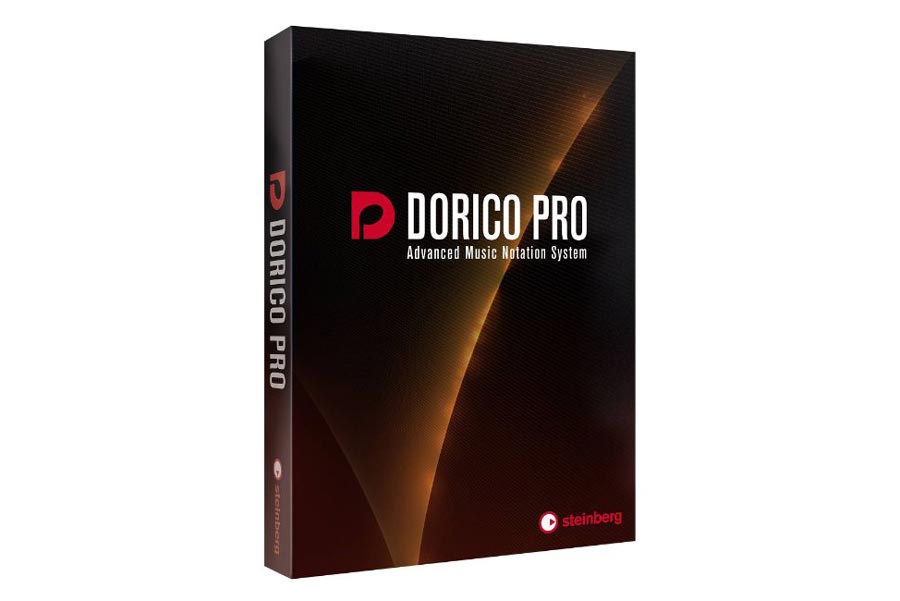
I worked at Sibelius from 1999 until 2012. Along the way, the company’s founders, twin brothers Ben and Jonathan Finn, sold the company to Avid, and things changed after that. Avid was going through a big corporate restructuring, and of course it was also hit by the big financial crisis in 2008 and following years, and over the course of three years from 2009 to 2012, they basically made more or less everybody who had joined the company as part of its acquisition of Sibelius in 2006 redundant, in successive rounds of layoffs. Finally, in 2012, the last handful of us who were still left working on the product, the core development team, were also laid off as our London-based office was closed. Luckily for us, Steinberg heard about the redundancies and offered to hire the whole development team and set us to work on building a competitor for Sibelius. That was in November 2012, and after four years of development the first version was released in October 2016.
The opportunity to work on a brand new scoring program, using our combined years of experience and all of the knowledge we’ve gained from understanding the needs of the tens of thousands of musicians who used Sibelius, was truly a once-in-a-career chance, and I really believe that Dorico is a truly modern tool for the modern musician.
What were the challenges?
Of course it’s been challenging: in particular the push to get the first version out of the door over the summer of 2016 was exhausting, and we have continued to work as hard and as fast as we can ever since to ensure that Dorico not only catches up with but overtakes its more mature competitors in every area with each new release. We’re especially proud of the most recent Dorico 2.2 release, and our users have really responded incredibly well to the new features.
Our biggest remaining challenge, I think, is to reach more musicians so that they know that an alternative exists to their current tool, and then to persuade them that it’s not too difficult to switch. Dorico is certainly different in approach to both Finale and Sibelius, but almost everybody who tries it finds that they can get their work done more quickly and easily than in their older program.
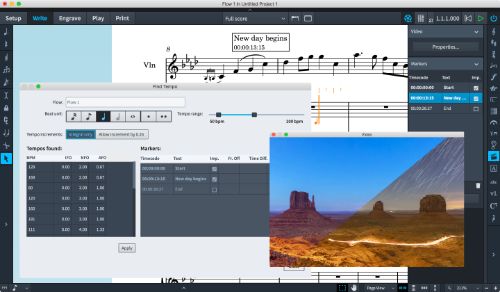
“It’s really gratifying to hear how much people love using Dorico, especially musicians who are coming to the program from another product, like Sibelius or Finale, and finding that once they have adapted to the differences in the way the product is put together, they can get much more beautiful results much more quickly than with their previous software.”
Many professional composers rave about Dorico and how intuitive it is as a composing package. What makes Dorico different to other notation packages?
Although there are many, many differences between Dorico and other music notation programs, I think the best way to sum it up is that we have designed Dorico to be more musical, so that the software both frees you to be creative and helps you to work more quickly. This is the central philosophy of the whole design, from the way that it is split into five modes that are focused on the main steps of putting together a score, to the way that all of the items are organised by their musical function rather than simply what they look like, to the way that you can input, edit and reinput music with a greater degree of freedom than in any other program, and so on. Dorico is focused around allowing you to express your musical ideas as directly as possible.
This might all sound a bit abstract, but I promise you that when you sit down in front of Dorico and spend a few minutes playing with it, you will wonder why you put up for so long with some of the things that your current software does. To give you a really simple example, if you’ve used Sibelius you’ll know that the word “dynamics” doesn’t appear anywhere in its interface, even though dynamics are one of the most common markings you would add to your score. In Sibelius, you have to learn that markings like forte and piano are entered using Expression text and that hairpins are entered using lines. But what about crescendo or diminuendo written out using words? Are those lines, or are they text? The problem with organising the software generically – text lives over here, lines live over here – is that it doesn’t embrace the slightly chaotic way that music notation actually works. In Dorico, by contrast, there is a single panel in Write mode that contains all dynamic markings, and they can all be input and edited in a consistent way.
We’ve carefully designed the whole of the application in the same way, to try to make everything make musical sense first and foremost, even if it’s more difficult to program, which it always is!
Watch Dorico in action
Here’s a selection of videos where you can see Dorico in action. One of the great features of this new music composition software is the online support available on their YouTube channel. There are over one hundred videos with How To’s, Tutorials, Feature Updates and interviews to show you how others are using the software.
You can watch more videos on the Dorico YouTube Channel.
What does a typical working day look like for you?
I’m very lucky, I think, because my working days are very varied. On a day when I’m in the office, and not out and about showing Dorico to teachers, students, composers and anybody else who’ll listen, I deal with a lot of email, I answer questions from our users, and I work collaboratively with the rest of the development team on the things we’re working on next. I find having direct contact with our users incredibly valuable, as it gives us real insights into what we’re getting right, what we can improve, and what types of things they want us to work on next.
What do you enjoy most about your job?
I love more or less everything about my job. I come to work each day and get to work with the team that I’ve known for the best part of twenty years on a product that we all really believe in, supporting the work of musicians around the world. There is also immense satisfaction to be had in seeing the software develop and inch forward. You can usually see some kind of progress, however small, every single day, and that is a real source of motivation and inspiration.
And finally, what 3 tips would you give to a student wanting to pursue a career in music technology?
This is a bit of a tricky one for me, as I never planned to make my career in music technology, so I didn’t really make conscious choices to bring myself to this point. But thinking about the kinds of people I have been lucky to work with over my career, I would say that the music part and the technology part are equally important: try to be curious about how technology works as well as what it can do for you, and think about how things fit together. If you have the opportunity, do some programming – there are some really interesting tools and technologies available for music and audio development, and many of them are free. And if you’re serious about entering the industry, when you’re choosing your college or university, look for one that has strong links to companies in that space, and that have a strong careers focus. For example, I visited the Department of Computer Science and Creative Technologies at the University of the West of England in Bristol a year or two ago and was really struck by how broad their curriculum was, the links to industry including the BBC, and the specific skills they teach to help you make your way as a freelancer or independent professional.
